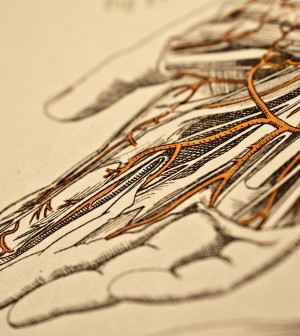- Could Your Grocery Store Meat Be Causing Recurring UTIs?
- Are You Making This Expensive Thermostat Error This Winter?
- Recognizing the Signs of Hypothyroidism
- 10 Strategies to Overcome Insomnia
- Could Artificial Sweeteners Be Aging the Brain Faster?
- Techniques for Soothing Your Nervous System
- Does the Water in Your House Smell Funny? Here’s Why
- Can a Daily Dose of Apple Cider Vinegar Actually Aid Weight Loss?
- 6 Health Beverages That Can Actually Spike Your Blood Sugar
- Treatment Options for Social Anxiety Disorder
Immune System Reboots During Sleep

Researchers say they’ve gained new insight into how the immune system restores itself during sleep.
Blood samples were taken from 14 healthy young men, average age 25, when they slept through the night and again when they stayed awake all night. The samples were analyzed for levels of T-cells, which are white blood cells that are the foundation of the immune system.
When the participants got a full night’s sleep, levels of all types of T-cells fell within three hours of falling asleep. But T-cell levels stayed high when the volunteers stayed awake all night.
It’s not clear where T-cells went when they left the bloodstream during sleep. But, previous research suggests they may accumulate in lymph nodes, according to the authors of the study published recently in the American Journal of Physiology — Regulatory, Integrative and Comparative Physiology.
The rapid fall in T-cell levels in the blood during sleep shows “that even one night without sleep affects the adaptive immune system,” study first author Luciana Besedovsky said in a journal news release. “This might be one reason why regular sleep is so important for general health.”
Besedovsky is a researcher in the Department of Medical Psychology and Behavioral Neurobiology at the University of Tubingen in Germany.
More information
The U.S. National Institute of Allergy and Infectious Diseases has more on the immune system.
Source: HealthDay
Copyright © 2026 HealthDay. All rights reserved.










